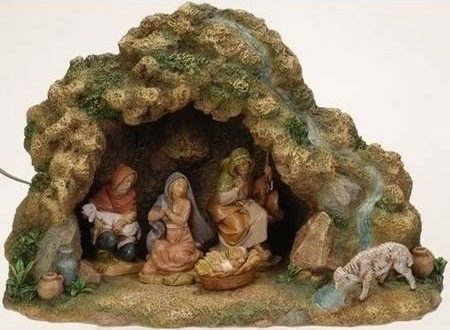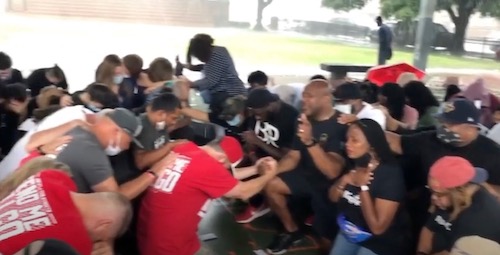How do we know if the thing we love is becoming an idol?
There was a time in my life when watching TV was a part-time job. When the world of daydreams in my head was far more inviting than the real world of pain and limitation of rheumatoid arthritis. Good thing it was in the days before I owned a computer.
There was a time in my life when watching TV was a part-time job. When the world of daydreams in my head was far more inviting than the real world of pain and limitation of rheumatoid arthritis. Good thing it was in the days before I owned a computer.
How can we tell if we’re living small? If our escapes and diversions are really costing us? If they are softly becoming the things we love and desire more than God?
I think of how Israel slipped into idolatry—a treaty here, an intermarriage there. Once the Israelites settled into the land, it was much harder to push back from the table, turn off the TV, pack up their swords, and go out to battle against their idol-obsessed neighbors. Within a generation the idols captured their imaginations, crept into their inner worlds and eventually into their national life.
“This is the way sin deceives,” writes Edward Welch in his book Addictions, A Banquet in the Grave. “In order to slip past our consciences it must begin with small steps of disobedience.”
Welch invites us to name the thing we love more than God for what it is—an idol—and describes falling into idolatry as a courtship, a progression from friendship to infatuation to love and betrayal and finally, worship.
My progression into that kind of courtship began from a heart divided between my dreams and God’s dreams. A passion for the study and teaching of God’s truth, but not the same delight for seeking the presence of God as a person.
My involvement in church and a Christian lifestyle disguised both my lack of affection and the danger of my escapes. I didn’t confess my lack of passion toward God because I couldn’t imagine what I was missing. I didn’t acknowledge my indulgences in escape and entertainment because I liked to think I wasn’t over the line. It’s okay as long as it’s all in my head. When I began to have doubts and questions about my indulgence, I kept my thoughts to myself. I needed someone to ask me, as Welch does in his book:
“Where are your affections?”
“What gets you excited? Depressed? Afraid? Angry? Hopeless?”
“What are these emotions saying about what you worship or what you love?”
Are you enjoying your times of personal worship of God?
“Are you confessing your own sin?”
How do you feel about going to church? When you don’t feel like going, what nudges you out of your covers? The prospect of worshiping God, taking your children, or seeing your friends?
“Are you speaking honestly about your own spiritual lethargy?”
If you don’t have a passion for God as strong as your passion for escape, are you praying that God will change you?
“Are you alert to where your imaginations are reckless?”
Can others “speak openly to you, without fear of your anger, judgment, or sermons?”
“Do you invite others to tell you where you need to be growing? Where you are missing the mark in your relationships?”
These questions invite us to step outside our busyness and, for Christ’s sake, REFLECT. Take a long hard look at ourselves in the mirror of God’s word and do something about the apathy in our eyes and the distance in our hearts.



